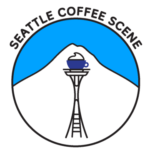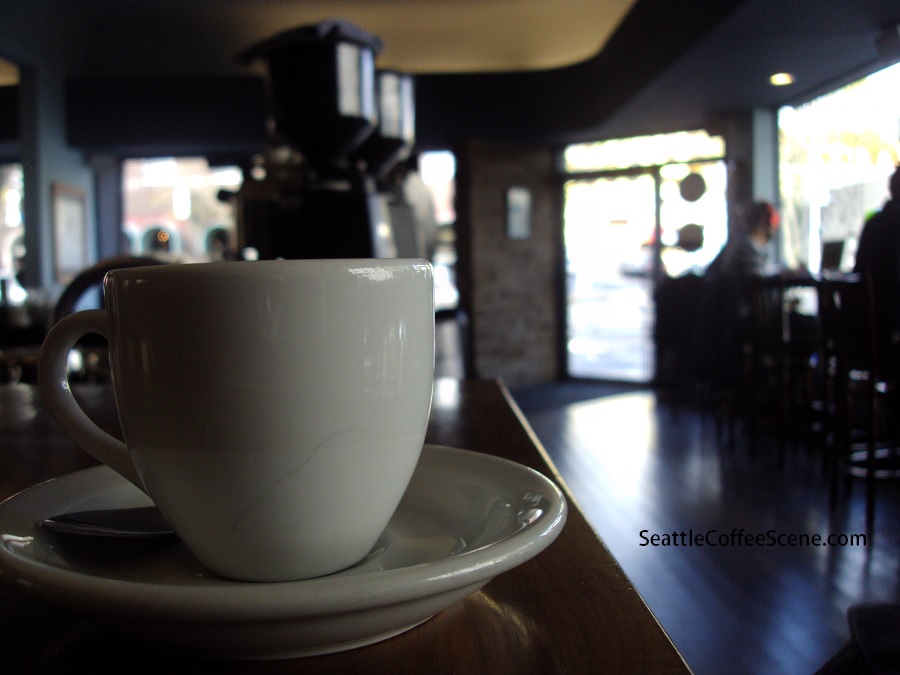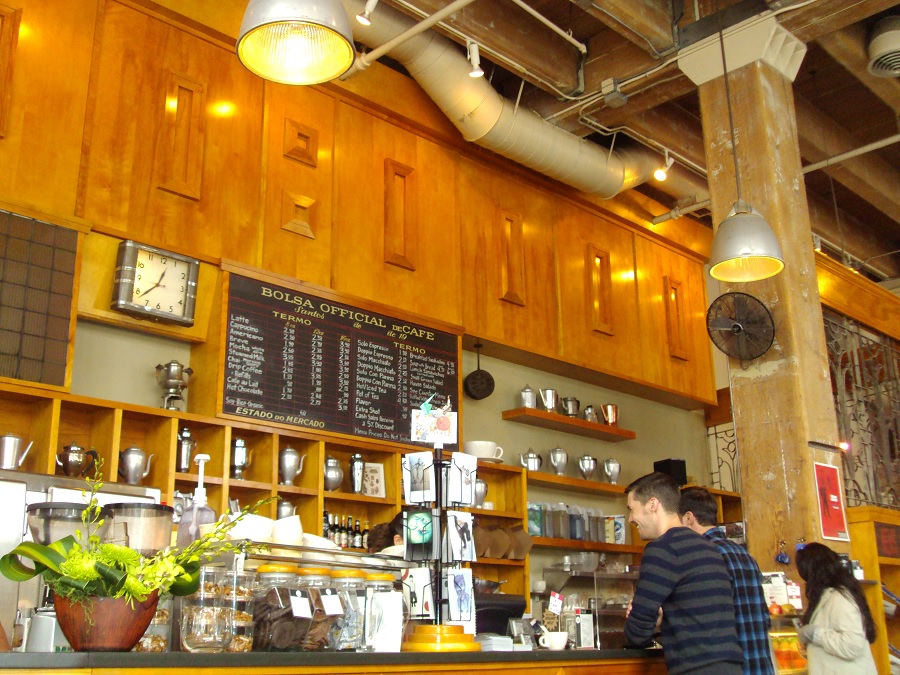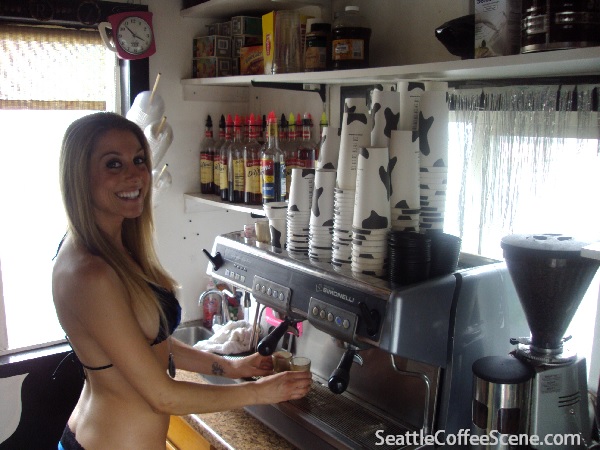The set up at Lighthouse Roasters is something more cafés should emulate. They pay homage to the art of coffee roasting by exhibiting their burly roasting machine right-smack in the back of the café. If you ever want to see what a roaster does up close, this is where it can happen – at least most weekday mornings.
On an unimposing street on the corner of Phinney and 43rd, Lighthouse Roasters opens its doors to a quiet neighborhood in Fremont.
With a stocked case of muffins, blueberry scones, and crumb cake, Lighthouse Roasters can satisfy just about any palate with its laid back café atmosphere and lively music piping over the speakers – all of which creates a welcoming, warm, rich vibe for locals to mingle or simply read the paper. Would I be able to do any real work here? Mmm…maybe not, the Feng Shui of the place isn’t necessarily conducive for working, but it’s still a good space for some. (I wasn’t able to get online, so beware).
Lighthouse Roasters was one of the first roaster cafes in Seattle. Today they have a loyal following of coffee lovers who appreciate quality beans and the art of balancing coffee blends. Lighthouse art showings perfectly “blend” with the love for coffee, after all, art and coffee are not that far away as it may seem.
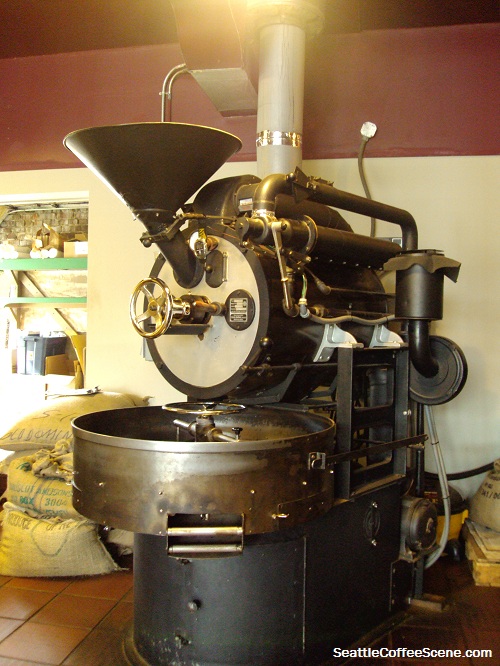
Pull a seat up at the bar, as no one’s a stranger here with Phil, the friendly barista/roaster who talks to everyone who walks in, maintaining previous conversations where they left off. As for their coffee, they offer plenty of varietals by the pound, ranging from Sumatra to Ethiopian, which the locals take advantage of – especially when I was visiting.
This gets me to the question of storage – coffee storage that is. What is the best way?
You see, in my caffeinated travels across many Seattle coffee shops I have amassed a little collection of ½ lbs. and 1 lb. bags of wonderful smelling coffee beans faster than I can brew them. Since I have heard several conflicting ways to store such beans, I decided to ask Phil how to do it right. “Don’t put them in the freezer or fridge. Keep it in a cool, dry place. You might want to use a ceramic jar with an air-tight clamp. Heat and air destroy coffee,” he concluded.
I happened to visit on a sunny day where shorts were the norm. But I could imagine finding a little refuge here from a cold, rainy Seattle afternoon. Without a doubt, like Fremont, every residential area would benefit from the likes of a Lighthouse Roasters as a neighbor…
Lately, I have been thinking about coffee shops and their effect on small communities. Whether they are downtown and swarmed by tourists or whether they exist on small residential streets visited regularly by locals just coming in from a quick break between gardening. I think a coffee shop has the potential to significantly impact our micro-cultures; they enliven our neighborhoods and they bring people together in a way no other business can.
Lighthouse Roasters, like so many other fine cafes and roasters, do exactly that. And I believe that Seattle – without its coffee houses, without its caffeinated “spaces” that make it possible to meet your neighbors – wouldn’t be the city it is today.
Hats off to Lighthouse Roasters for sweetening and energizing a distinct corner of Seattle.
Lighthouse Roasters
Location: 400 N 43rd St Seattle
Neighborhood: Fremont
Espresso $1.60
The coffee cup on the map below displays Lighthouse Roasters’ exact location:
[mapsmarker marker=”22″]
